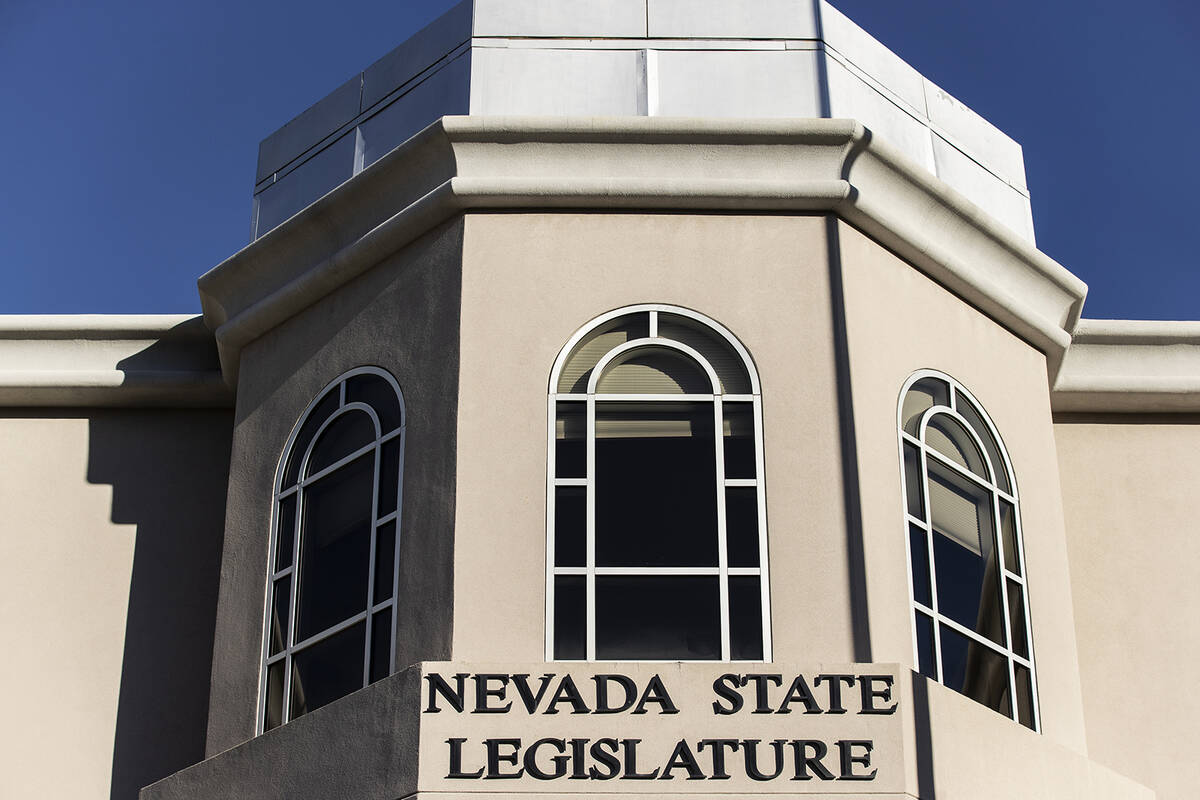5 new laws that take effect in 2025 in Nevada
As Nevadans ring in the new year with fireworks and festivities, new laws passed by the Legislature a year and a half prior will take effect, from a diaper tax exemption to a wage requirement for employees with disabilities.
Five laws — or provisions within them — officially go into effect Wednesday. Here’s a rundown of what each of them do:
1. Exempts sales tax on diapers
With the passage of ballot Question 5 in the 2024 election, Senate Bill 428 that proposed to exempt child and adult diapers from the state’s sales tax goes into effect in the new year.
The bill had passed unanimously in the 2023 legislative session, but it required passage from Nevada voters to take effect. The ballot question passed overwhelmingly, 69 percent to 32 percent.
Nevada families spend on average $1,000 on diapers per child each year and pay up to $84 in sales tax on those diapers, according to the ballot question guide released by the secretary of state’s office.
2. Implements wage requirements for employees with disabilities
Assembly Bill 259 phases out subminimum wage payments to people with intellectual or developmental disabilities by January 2028.
The law requires job providers to develop a plan to transition people earning less than the minimum wage to earning at least the state minimum wage, which is $12 an hour.
Effective Wednesday, providers of job and day training services cannot enter into a contract that pays an employee a wage below the state’s minimum.
Organizations that receive subminimum wage certificates will no longer be recognized by the state of Nevada, according to Assemblywoman Tracy Brown-May, the bill’s sponsor. Many organizations, however, already have gotten rid of such certificates, she said.
“It’s important we work to evolve how to support people with disabilities,” the Democratic assemblywoman from Las Vegas said. “Nobody should have the ability to exploit a person with a disability.”
The law also allows for the Department of Health and Human Services’ Aging and Disability Services Division to provide Medicaid benefit counseling services to people with developmental or intellectual disabilities so they can have access to benefits planning and can understand how many hours they can work while still maintaining their federal benefits under Medicaid, Brown-May said.
3. Prohibits state purchases of drones from entities deemed U.S. enemies
Senate Bill 11, relating to state agencies’ use of drones, prohibits a state agency or law enforcement agency from operating, purchasing or acquiring drones from entities that the U.S. Department of Defense determines to be enemies of the country, particularly those associated with the Chinese military.
The law required the Department of Public Safety to adopt regulations establishing a list of countries and businesses from which a state agency or law enforcement agency cannot purchase drone equipment, based on the William M. Thornberry National Defense Authorization Act for Fiscal Year 2021.
After Wednesday, Nevada law enforcement and public agencies can only purchase drone equipment from a country, business or entity approved by the Defense Department.
The law also allows state agencies to use drones for fire code and inspection services, while prohibiting the public agency from collecting any photograph with the drone during the inspection.
4. Revises penalties for motorcyclists driving without proper license
Nevada law prohibits residents from driving a motorcycle on the highway unless they hold a valid motorcycle driver’s license or a motorcycle permit. If someone violates the law, they are guilty of a misdemeanor.
Senate Bill 423 requires courts to allow a person found in violation to complete a course of motorcycle safety in lieu of imposing a fine.
The law also changed eligibility requirements for instructors in the Education of Motorcycle Riders program, removing the requirement that they be a Nevada resident or a member of the military stationed in Nevada, as well as the requirement that they hold a motorcycle driver’s license for at least two years.
5. Establishes caregiving program for Medicaid recipients with dementia
Assembly Bill 208 established a program to provide structured family caregiving to certain recipients of Medicaid. It required the Department of Health and Human Services to apply for a home and community-based services waiver to include structured family caregiving for recipients of Medicaid suffering from dementia.
Nevada law already required the DHS to apply for a waiver to cover family home caregiving for recipients of Medicaid with physical disabilities, and Assembly Bill 208 expanded that to include Medicaid recipients with dementia.
It required the department to include an authorization for an applicant to choose his or her caregiver and the residence where they will receive caregiving. It also required the caregiver to become an employee of an agency to provide personal care services in the home or an intermediary service organization and receive a daily stipend through that employer.
Contact Jessica Hill at jehill@reviewjournal.com. Follow @jess_hillyeah on X.




















